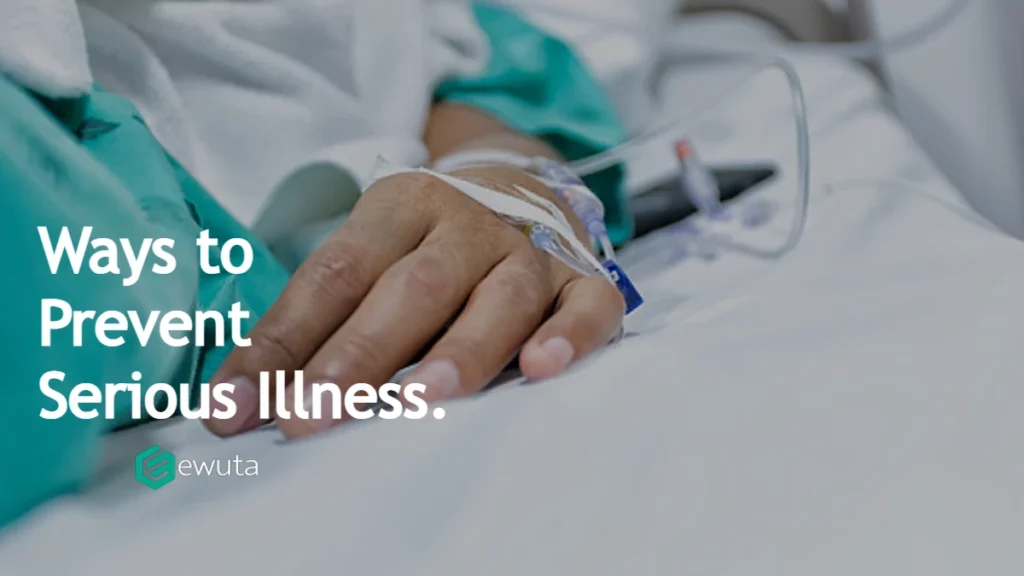
No one wants to get sick because being sick takes us away from our families, reduces our productivity, can lead to expensive medical treatments, and impact us for the rest of our lives. Fortunately, there are several things you can do to protect yourself from a serious illness. In this article, we will be looking at some obvious things you need to do, and some not-so-obvious practices.
1. Handle and Prepare Food Properly
You might not know that the food you buy could be full of disease-causing pathogens. These pathogens get on the food as it is being harvested, transported, and handled in the store before it ends up in your shipping basket.
Many retailers will wash fruits and vegetables for you, but that does not mean you should neglect to do it yourself again. The conditions in the retail store are not sanitary, and there are chances someone has touched the fruits you have bought.
Second, some foods carry serious pathogens. These are typically foods that come from animals. Examples include eggs, bacon, beef, chicken, and fish. They can carry serious pathogens such as salmonella or worms in the case of pork and some parts of beef.
To protect yourself, always cook your food properly. This means at the right temperature and for the correct amount of time. You can find information on how long and at what temperature to safely cook different types of foods and meats.
Also, clean your food preparation surfaces regularly when handling different types of foods. For example, clean after cutting meats and before handling vegetables or fruits on the same surface.
2. Wash Your Hands Regularly
Washing hands is something many people were doing during the pandemic, but many of us have forgotten to do it regularly since things started easing. Your hands touch a lot of unsanitary surfaces that are often full of pathogens.
You can easily transfer these pathogens to your eyes, mouth, and nose during the day, which can cause serious illness if you catch the wrong bug. Wash your hands regularly to get rid of these pathogens. Use soap and water whenever you can or sanitize your hand from time to time.
Doing so is especially important if you have small kids who might get sick depending on what you have touched during the day.
3. Going For Regular Body Scans
Many people put off body scans as long as they feel fine. The usual culprits are those under the age of 40 because they think they are healthy enough to not warrant these scans. However, some diseases develop slowly and symptomatically such that by the time you start feeling unwell or experiencing pain, they have already progressed too far.
The result is lengthy treatments, meaning more expensive treatments, that have lower chances of working. Different types of cancers fall into this category because cancer can develop slowly without you noticing until symptoms appear.
Regular body scans are the best way to catch cancers early and ensure they do not end up becoming serious and life-threatening. The two main types of scans you need for the detection of cancer are Xrays and MRIs.
Buy, what is the difference between MRI vs. Xray? An Xray uses radiation to image the internals of the body. Different tissues have different radiation absorption rates, and this is what creates the different contrasts on the Xray image. By looking at the contrast on the image, a radiographer, pathologist, or doctor can tell if there are cancerous or infected cells in the area imaged.
MRI machines, on the other hand, use radio waves and magnetic fields to image these structures. The images are developed by a computer, giving the physician or radiologist a clear indicator of what is happening inside the body.
There are other differences between MRI vs. Xray and Ezra has a detailed guide on everything else you need to know about these imaging technologies. Ezra provides full-body scanning services for the early detection of cancer. They scan up to 13 organs during a visit to assess the potential of different types of cancers and diseases so you can begin treatment as early as possible.
4. Clean Surfaces Regularly
Some germs can survive on different types of surfaces for a long time. They can then transfer to your hands and then to everywhere else you touch. Clean frequently used surfaces regularly. For most surfaces, soap and water should be adequate.
You should pay special care when cleaning the bathroom and kitchen. Your bathroom will have a lot more pathogens than other areas of the house. For the kitchen, you should clean these surfaces regularly because this is where you handle food.
You should clean the house more frequently if anyone in the house is ill. Pay special attention to surfaces made out of glass, tiles, and ceramic because pathogens can survive on these surfaces for a lot longer.
See: How to Make the Most Out of Your Kitchen Space & Reclaim Your Sanity
5. Get Vaccinated
Our immune systems fight pathogens by remembering what they are and how they defeated them the last time they encountered these pathogens. Vaccines introduce dead or inactive pathogens into your body. These pathogens have enough RNA and DNA materials for the immune system to identify them when it encounters them again.
When your body encounters familiar pathogens, it produces the right antibodies and white blood cells to kill off the infection and prevent serious illness.
Vaccines have been proven to be one of the best lines of defense we have, especially against illnesses caused by viruses such as the flu. This is because these viruses mutate and the body might have a hard time identifying them using previous “memories”.
6. Avoid Touching Wild Animals
Wild animals carry all manner of diseases and germs, some of which our bodies are not ready to fight. Ensure you and your pets avoid any wild animals you encounter. Wash your hands if you do touch them.
Also, always visit a doctor if you are bitten by a wild animal.
While some of these preventative measures might seem obvious, many people forget to keep them in mind. Practice these things to keep yourself and your family safe and healthy.




